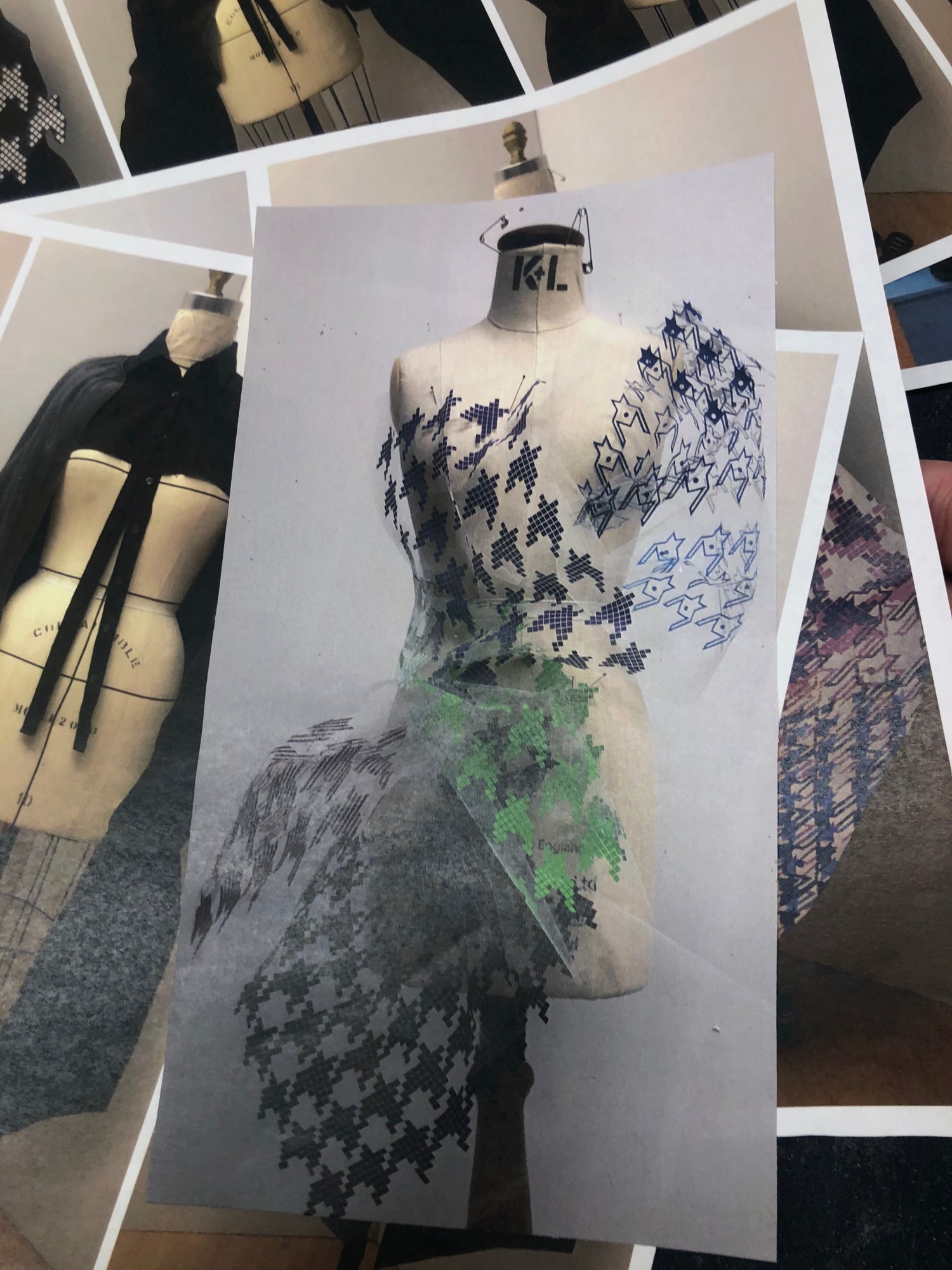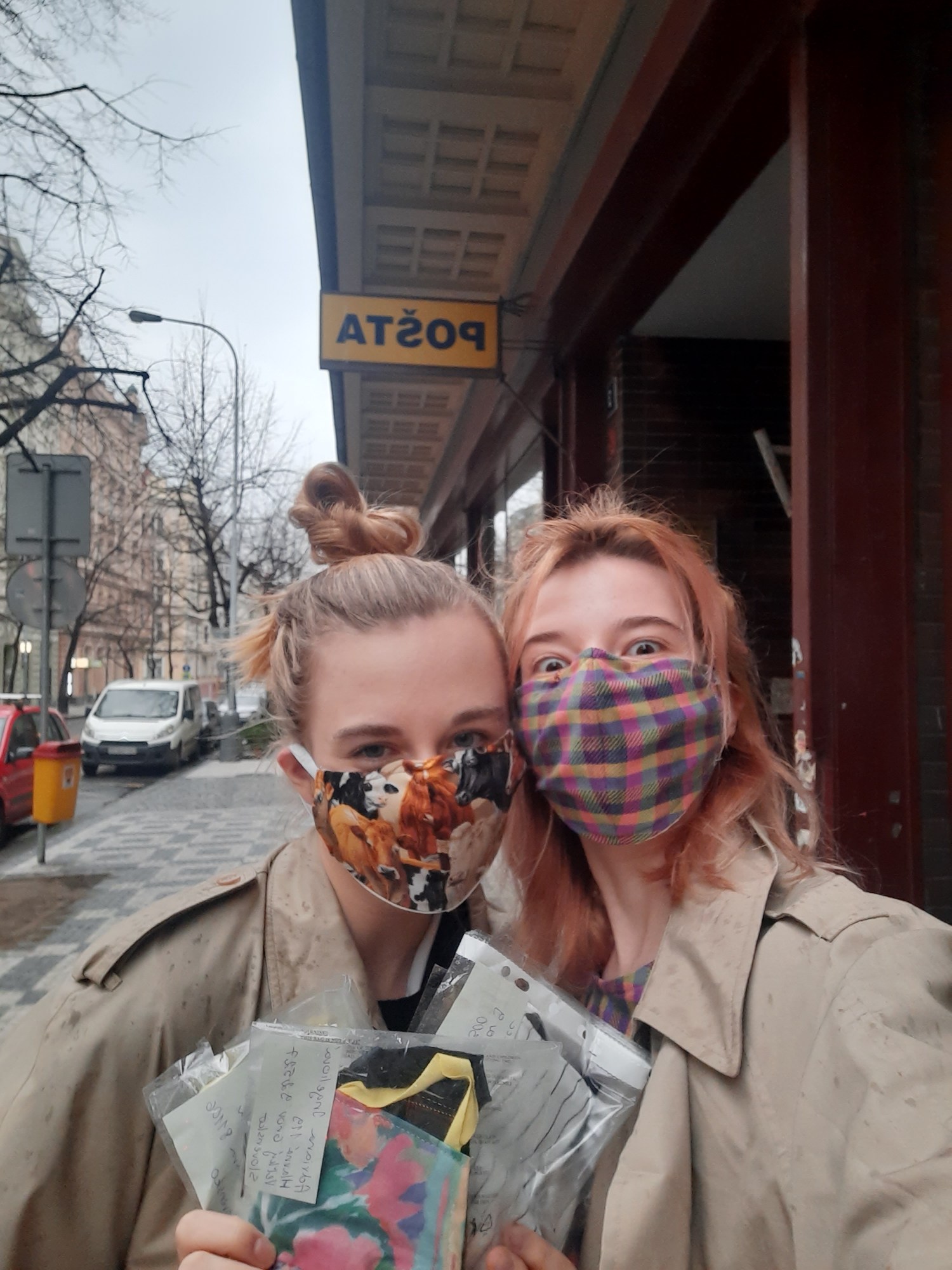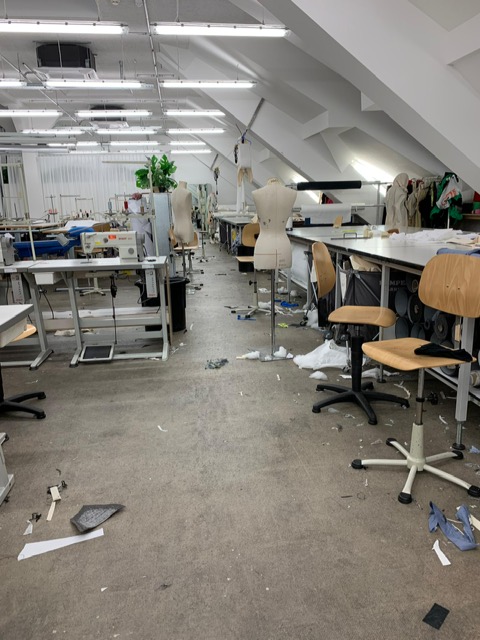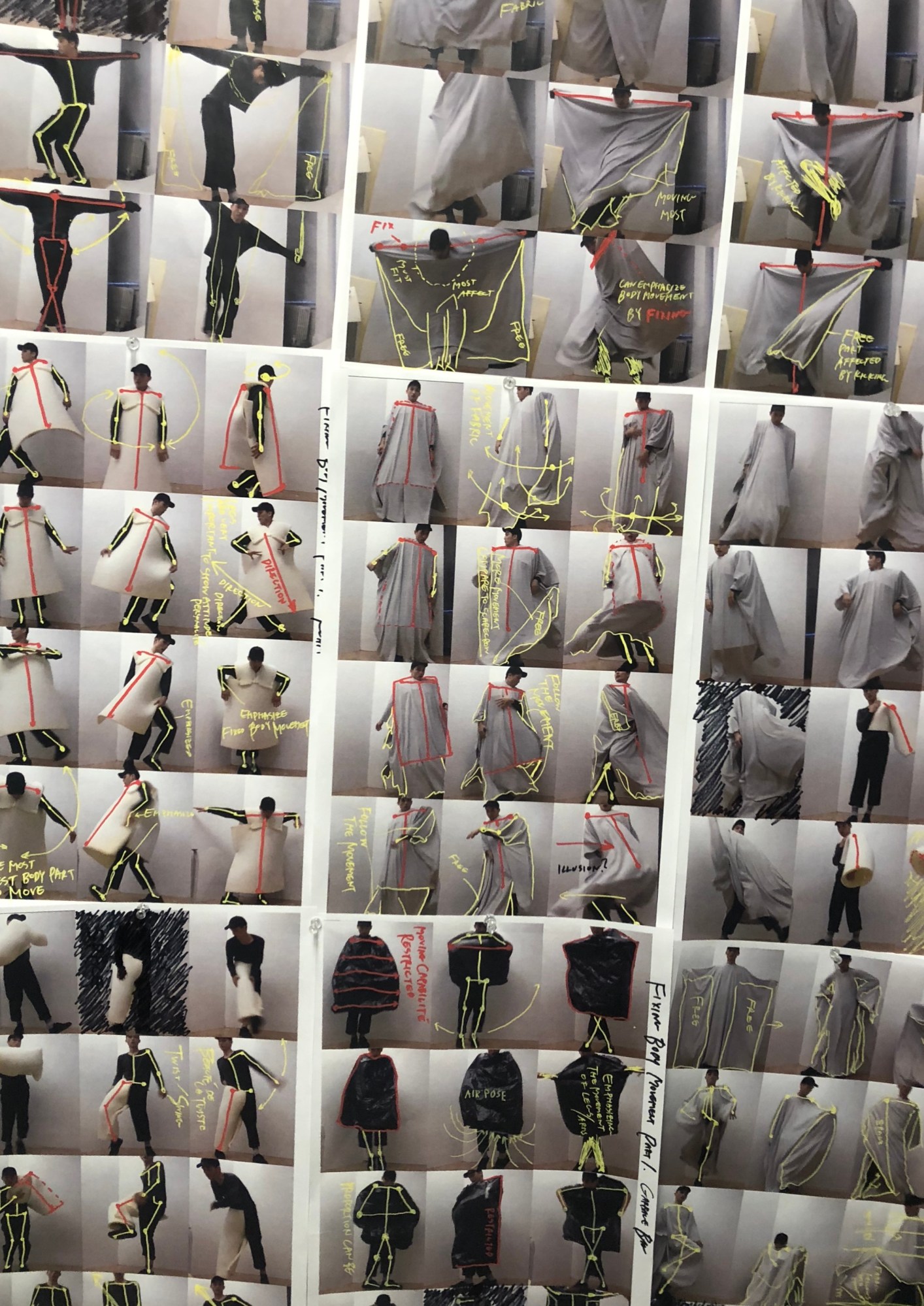Kou Yanga was in the midst of designing his graduate womenswear collection when he found out New York’s Parsons School of Design would be closing its doors and transitioning to online learning in light of the coronavirus pandemic. The news came during the most critical semester of his MFA program for fashion design, a time when he would be developing the final garments for his intricate, dance-inspired thesis collection.
“This break was supposed to be utilized for developing our look, making lots of samples, finalizing the pattern, and so on,” Yanga explains. “Instead, we are waiting for information in regards to online study, which is basically impossible for fashion design students.”
Students from Milan to New York City have been scrambling to adapt to learning from home, leaving art and fashion students like Yanga wondering how they will complete their work. Many have lost access to the studios, machinery and fabric suppliers that they rely on.

“Before my college closed indefinitely, we were able to go in and pack up our things and bring as much as possible home, and I am very lucky to have a home sewing space that I can work in,” Jillian Vessey, a fashion student at New Brunswick College of Craft and Design in Canada, told i-D. “Many of my classmates are borrowing domestic sewing machines and finding pattern paper alternatives to continue their work.”
While many students are grateful for their schools’ proactive response to the global COVID-19 pandemic, it is becoming more likely now that they won’t be able to present their collections at their annual graduate shows. These global events offer them crucial access to press and industry professionals, as well as an opportunity to showcase work that’s been years in the making.
“The graduation show happens in September, so we have no clue how this works yet,” Yanga says, adding that he is in an even more difficult situation. He will have to find a job quickly after graduation in order to maintain his US visa.

Across the Atlantic in Basel, Switzerland, Corinne Baumann and her peers at the Institute of Fashion Design Basel found themselves in a similar situation. Just one day before they were set to present their final collection to an audience of nearly 1,000 attendees, the Swiss government restricted public gatherings. The graduates improvised by working in small groups to film their collections, which should be available for view online soon.
“It’s a pity that after the long and hard work on our final collection we didn’t have the chance to show it proudly in front of family, friends, and press,” Baumann says. “At the moment, we all have other thoughts. It just feels like nobody is interested in our graduation.”
With no real end in sight, students are adapting to their new reality the best they can. Many are improvising with makeshift studios and supplies in their homes, but as the quarantine continues, it will be harder to access the materials they need.

“Since I can’t travel to the fabric stores, I’ve had to improvise with what I have. I think that when you’re limited in the supplies you have, it can actually broaden your creativity and thinking especially during this situation,” says Francis Cooney, a first year fashion student at Parsons.
Despite everything, the pandemic has given fashion students a unique opportunity to join the fight against coronavirus, using their skills to help those who don’t have access to crucial medical equipment like face masks and gowns. As of last week, fashion students at the Academy of Arts, Architecture and Design in Prague have sewed hundreds of masks to distribute to vulnerable populations.
“We noticed the call from the local authority asking for help to provide masks for social workers who service seniors and disabled citizens,” Pavel Ivančic, the head of the design studio at the university, told i-D. “We contacted our students immediately, providing fabrics from our stock and started producing masks.”

Similar calls have been happening across social media and around the world, with fashion students joining a larger industry initiative alongside manufacturers and fashion designers like Christian Siriano, Collina Strada and Pyer Moss, to help with the global shortage of personal protective equipment.
“All of the students and graduates work as a community where we can share material, tools and ideas for sewing. It is important to be fast, but thorough at the same time,” explains Academy of Arts student Sára Sedláková, who has made more than 200 masks. “And it is not only about small groups of people but also about the industry itself. People from the fashion industry offering their machines to help with cutting pieces of masks or just offering the material.”
While this certainly wasn’t what fashion students around the world were expecting to work on during their final year, the next generation of designers is showing that even without their graduate showcases, they can use their innovation and talent in ways that matter more than ever.

“We are not always sure that we are in the right field, as it is the dirtiest and one of the most superficial industries in the world, but this crisis is giving us a completely different perspective,” Natálie Szegény and Tatiana Piussi, two students at Prague’s Academy of Arts, said in a joint email statement.
“In our opinion, many people have realised how important it is to have and support local manufacturers and designers. How important it is to know what and who you are buying from. When we are detached from the outside world, we must rely on each other.”
